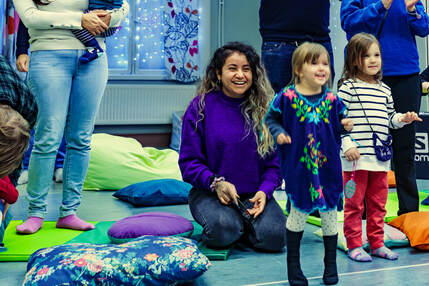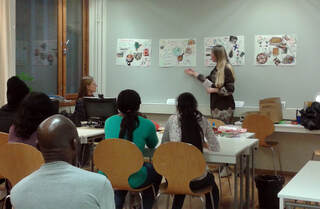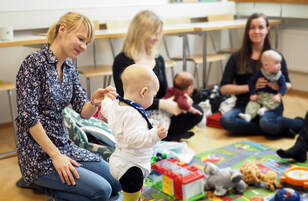We currently live in a globalized, interconnected, multicultural world. Societies are shifting towards environments where people from different cultures, nationalities, languages, beliefs, and customs live together in one community. Increased intercultural contact is more likely, and therefore new social interactions are constantly settled. Intercultural friendships represent a complex intimate intersection of different variables, aspects, and processes. They are unique in a way that individuals most surmount challenges such as overcoming stereotypes and negotiate cultural differences. On the other hand, intercultural friends can benefit from expanding cultural knowledge and broaden their perspectives. Friendship Development Research on this topic is still very limited. Despite this, studies suggest that intercultural friendships are influenced by personal and contextual factors. Contextual factors: Emerge in certain scenarios and play a pivotal role in friendship development. Examples:
CommunicationFindings suggest communication supports intercultural friendship formation. How are we communicating with our intercultural friends? How communication impacts our friendship development? One aspect, for example, is lack of fluency in a common language. Language barriers often become a hindering factor in pursuing an intercultural friendship- making conversation difficult, increasing the chances of miscommunication, frustration, and ultimately animosity. On the other hand, language differences can also motivate individuals to talk more often, even becoming a source of humor. In many cases, a jargon unique to the friendship is established, moving the friendship to closer levels. Conclusion Intercultural friendships portray the complexity of cultures and the significance of communication to nurture and maintain such relationships. Once the individuals overcome challenges, such as language barriers or prior misconceptions, they will continue to develop successful, rich, and rewarding relationships.
Further research should be focused on intercultural friendship development and identify what elements could potentially deteriorate such relationships. Bibliography
Yvette Ahonen
0 Comments
Leave a Reply. |
blogi - blogAjatuksia ja kokemuksia elämästä kahden kulttuurin keskellä.
Reflections and experiences from the life of intercultural families. kategoriat
All
osallistuToivotamme sinut lämpimästi tervetulleeksi osallistumaan blogiyhteisöömme: lue, kommentoi ja kirjoita!
Kirjoittajina voivat toimia kaikki kahden kulttuurin arkea elävät ja aiheesta kiinnostuneet. Kynnystä kirjoittamiselle ei tule nostaa liian korkealle ja kirjoittaa voi joko omalla nimellä tai nimimerkillä. Blogissa esitetyt näkökannat ja mielipiteet ovat kirjoittajien omia, eivätkä edusta Familian kantaa. Kahden kulttuurin arki on itsessään kiinnostavaa ja siitä kirjoittaminen voi avata myös itselle uusia näkökulmia! Blogikirjoituksia voi tarjota sähköpostitse (info@ familiary.fi) tai yhteydenottolomakkeen kautta. Lopullisen valinnan julkaistavista jutuista tekee Familian henkilökunta. Tervetuloa mukaan! participate!We warmly welcome you to participate in our blog community: read, comment, and write!
Anyone who lives and works in the world of intercultural families and is interested in the topic is welcome to contribute. The threshold for writing should not be too high, and you can write either under your own name or under a pseudonym. Keep in mind that the views and opinions expressed in the blog are those of the authors and do not represent the position of Familia. The everyday life of intercultural families is interesting and writing about it can also open new perspectives for you! Your story matters and helps to raise awareness about the opportunities and challenges within intercultural families. Blog contributions can be submitted by e-mail (info@ familiary.fi) or via our contact form. Final selection and edition of the stories to be published will be conducted by our staff. Welcome to join us! |
|
|
© Familia 2024




 RSS Feed
RSS Feed

